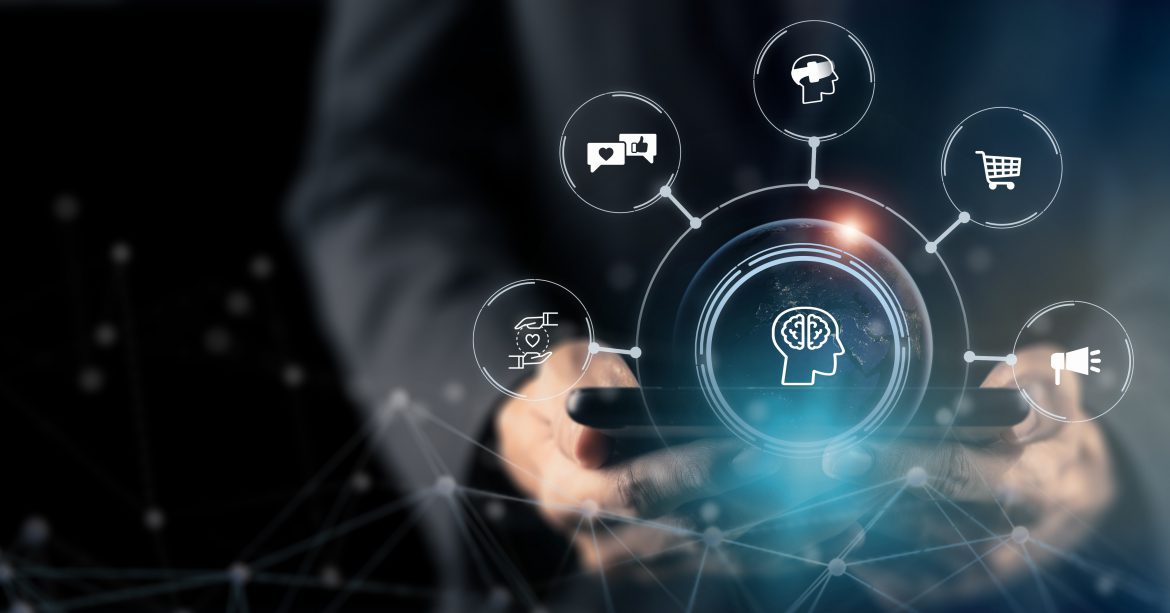AI and its impact on content marketing
The study of building computers and software that can carry out activities that ordinarily need human intelligence is known as artificial intelligence (AI). Natural language processing (NLP), picture identification, and decision-making have seen tremendous advancements in AI in recent years, and it has already started to change content marketing.
Marketers can produce, optimise, and distribute content more successfully using AI-powered solutions. AI-powered writing aids, for instance, may assist writers in creating more engaging content. In contrast, AI-powered analytics can help marketers understand how their content is performing and inform their decision-making.
Here are ten reasons on how AI can impact content marketing:
1. Improved Content Creation
AI-powered writing assistants and content-generation tools can help writers create more engaging and compelling content. These tools can analyse data on audience demographics, search engine optimisation (SEO), and past performance to make recommendations on everything from headlines and keyword placement to tone and structure. In a survey of digital marketers, 70% reported that they use AI to improve customer experience.
2. Optimisation
AI-powered analytics can help marketers better understand how their content is performing and make data-driven decisions. By analysing data on engagement, bounce rates, and other metrics, AI can help marketers identify areas where their content is underperforming and adjust to improve it. This can lead to more effective content that is more likely to rank well in search engines and drive conversions.
3. Automation of repetitive tasks
With the help of AI tools, repetitive and time-consuming tasks such as data analysis, content curation, and social media management can all be automated. This frees up marketers to focus on more high-level tasks and strategy development. For example, in a survey of content marketers, 48% reported using AI to automate their content creation.
4. Personalisation
Another way AI is impacting content marketing is by making it possible to personalise content for individual users. AI-powered chatbots and virtual assistants can be used to interact with customers and personalise their experiences. This can be done by providing personalised recommendations, creating custom-tailored content, and adjusting the design of a website based on the customer’s browsing behaviour. This can lead to more loyal customers and higher conversion rates.
5. Chatbots and virtual assistants
AI-powered chatbots and virtual assistants can interact with customers and provide personalised assistance. These tools can handle many customer service tasks, such as answering frequently asked questions and providing product recommendations. A study by Accenture found that chatbots can reduce customer service costs by 30%.
6. Predictive Analytics
AI and machine learning algorithms can help predict customer behaviour, preferences, and intent. With this information in hand, marketers can create more relevant content, drive higher engagement and increase conversions. Predictive analytics can also be used to anticipate what customers are likely to search for and create content that addresses those needs ahead of time, which can help to boost search engine rankings.
7. Content Optimisation
AI can be used to optimise content for different platforms and channels. By analysing data on the performance of content on different platforms, AI can make recommendations for how to improve visibility and engagement. For example, an AI-powered tool can analyse data on the engagement of social media posts and make recommendations for the best time to post, the optimal length of a post, and the best types of media to include.\
8. Recommendation Systems
These systems use machine learning algorithms to analyse data on user behaviour, demographics, and interests to recommend content that is likely to be of interest to individual users. By providing personalised content recommendations, recommendation systems can help to increase engagement, reduce bounce rates, and ultimately drive conversions. Recommendation systems can help to increase engagement, improve the user experience, and drive conversions, by using AI-powered algorithms to provide personalised content recommendations.
9. Video and Image Analysis
Video and image analysis is an important area where AI is having a significant impact on content marketing. With the help of AI-powered image and video analysis tools, marketers can analyse images and videos to understand the emotions, subject matter, and sentiment of the content. This can be useful in understanding what kind of content resonates with audiences and how it can be optimised.
10. Measurement and Reporting
AI-powered analytics tools can provide detailed, real-time insights into the performance of content, including data on audience engagement, website traffic, and conversions. This data can be used to understand what is working and what isn’t and make data-driven decisions about content strategy. The ability to track and analyse the performance of content in real-time can help marketers quickly identify and address issues and make data-driven decisions to improve the effectiveness of their content marketing efforts.
Marketers will undoubtedly have more and more opportunities as AI advances to harness its capabilities to improve their content marketing campaigns and deliver better results. Using AI and its technology in content marketing shows to be promising and it will change the industry due to its broad range of possibilities.



